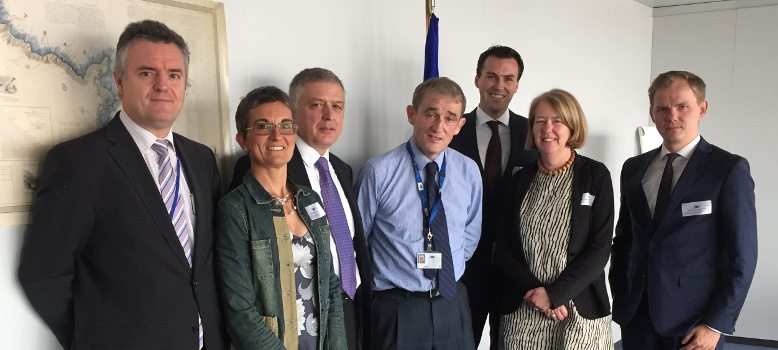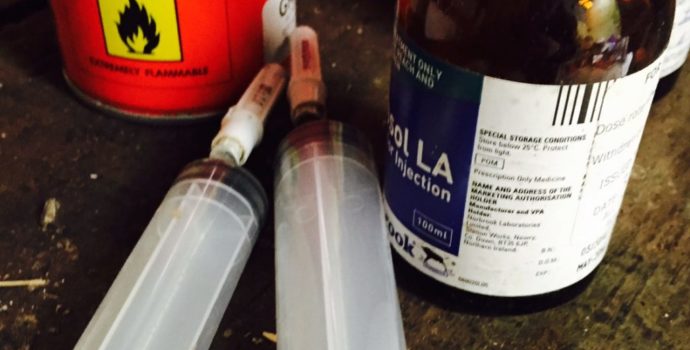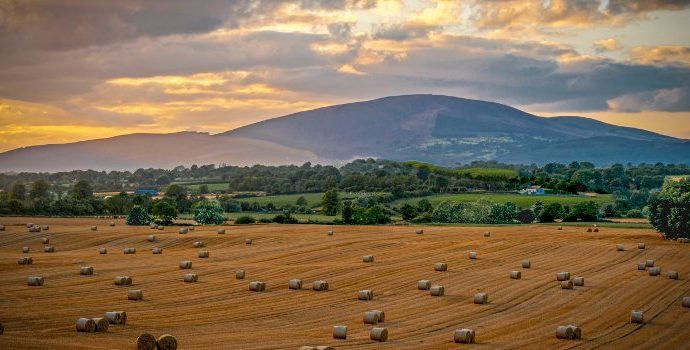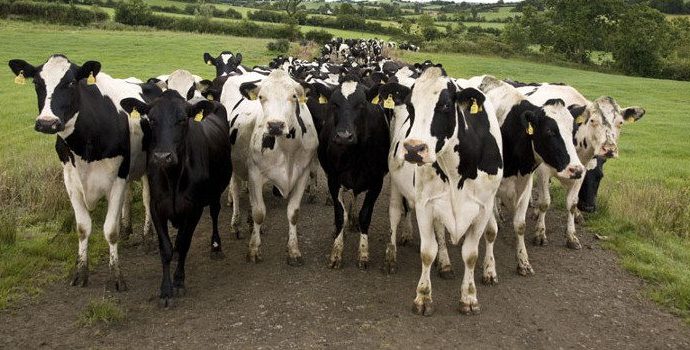Like-minded Eu Farm Organisations Meet with Hogan Cabinet for a Fair and Equitable 18th July Dairy Package

IFA today joined farm organisation colleagues from Germany, Denmark, the Netherlands, the UK and Sweden for a technical discussion with members of Commissioner Phil Hogan’s Cabinet to ensure that the 18th July dairy funding package is fair and equitable for all EU dairy farmers, including those who invested to expand in the legal certainty of the end of quotas.
IFA Dairy Executive Catherine Lascurettes, who participated in the meeting, said: “All EU dairy farmers are under enormous financial pressure, with milk prices below production costs everywhere, and the market downturn, which has lasted longer than anyone expected, is making farmers’ situations intolerable. All EU dairy farmers need continued support and the EU Commission and Agriculture Council must come forward with a package which will help them cope with the cash flow implications of the slump until the emerging recovery takes hold. However, this package must be fair and equitable, and suggestions that it might disadvantage milk producers who have expanded production are totally unacceptable to IFA and to many of our EU colleagues”.
“Farmers have invested in the legal certainty of the end of milk quotas. In order to supply a continuing growing global demand for dairy products, they are probably more vulnerable than most from a cash flow perspective. Their investment, and that undertaken by their processing industry, makes a very significant contribution to the general and rural economy of the EU, and to the growth of what is a hugely valuable business sector employing hundreds of thousands in all regions of Europe,” she said.
“It is unfair and unacceptable to blame those entrepreneurs for a supply/demand imbalance which has its origin in global factors, including two years of global milk production growth, the loss of Russia and partial loss of China as significant buyers, and the pressure on demand caused by lower oil revenues for some emerging markets,” she said.
“Also, it is short term thinking only which suggests that for the EU to reduce production unilaterally would solve the current slump. Furthermore, as supplies are already moderating, one has to question the wisdom of making the spending of scarce EU funds to ease cash flow pressures conditional on production reduction. As a policy, reducing production with every downturn is damaging to the huge economic potential of the EU dairy sector, and does nothing to better equip dairy farmers to cope with volatile prices and incomes,” she said.
“Long term, market risk management instruments must be developed to help farmers cope with the volatility which is now part of normality. For this year’s crisis, we need cash flow supports which are fair and equitable, and do not discriminate against those farmers who have invested to grow their sector,” she concluded.




